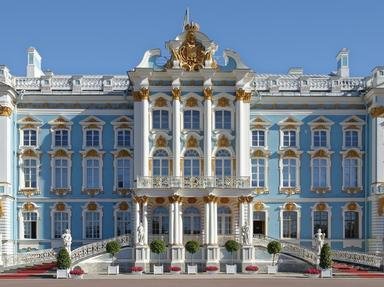Quiz Answer Key and Fun Facts
1. Ivan the Terrible created a tightly controlled Russian state and attempted to conquer many lands. What class of citizens, through fear and brutality, did he especially target?
2. Boris Gudunov basically controlled Russia behind a feeble Tsar Fyodor I before he was tsar himself beginning in 1598. Although he tried to help the country, things did not go as planned. When Boris died in 1605, what was the then-current era being called?
3. Michael of Russia became tsar in 1613 at the young age of sixteen. Under his reign, multiple reformations were completed. He is probably best known, however, for being the first tsar of what Russian dynasty that lasted until 1917?
4. Peter the Great ruled Russia from 1682 until 1725, and instituted a series of reforms that brought his country into one of the leading powers of the time. What event most helped shape Peter's destiny?
5. Elizabeth Petrovna was empress of Russia from 1741 to 1761. Under her artistic reign, the country's prestige as an international power grew. What royal residence, on the Neva River, did she have renovated to unbelievable grandeur?
6. Catherine the Great reigned for over thirty years, from 1762 until 1796. An extremely charismatic woman, she left behind a more enlightened and geographically larger Russia. How did she obtain the throne?
7. Alexander I, grandson of Catherine the Great, led Russia from 1801 until 1825. He had planned to devote his reign to peace. Ironically, he would best be known for war. What European ruler did his army defeat in June of 1812?
8. Nicholas I ascended to the throne in 1825 and ruled for thirty years. True or False: He was known as a forward thinker, much beloved, and often compared to his grandmother Catherine the Great.
9. Alexander II, who ruled from 1855 to 1881, is known for many things, one of which involves William Seward. When Alexander II sold the land in 1867, at the price of $7.2 million, what US state did it turn out to be?
10. Nicholas II was the last Russian emperor and served from 1894 until 1917. This man, who believed his authority was derived from God, found a populace unwilling to follow that dogma. What happened to him after he abdicated the throne in 1917?
Source: Author
stephgm67
This quiz was reviewed by FunTrivia editor
ponycargirl before going online.
Any errors found in FunTrivia content are routinely corrected through our feedback system.
